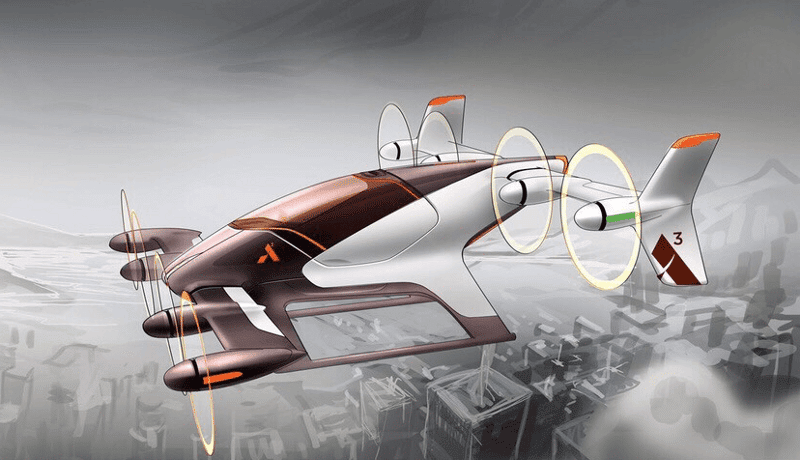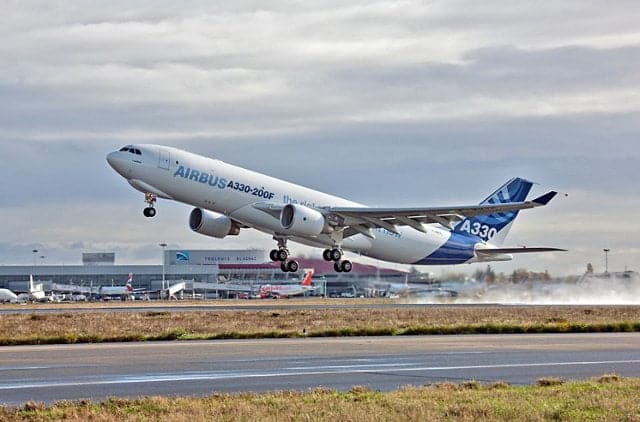The concept of unmanned commercial flight has been banned for years. The technology was practically ready, but there was little concrete evidence that autonomous flight could ever actually take off from the ground. Until now.
Airbus confirmed that one of its unmanned airliners took off automatically from Toulouse airport in France last December.
The European aerospace company conducted a series of successful tests on autonomous flight last month, with two pilots on board but just in case.
According to Airbus, the A350-1000 achieved eight perfect automatic takeoffs during a test that lasted four and a half hours.
“While we completed the alignment on the runway, waiting for clearance from air traffic control, we engaged the autopilot”Airbus test pilot, the captain explained in a statement Yann Beaufils.
“We moved the throttle levers to the takeoff setting and monitored the airplane. It started moving and accelerating automatically while maintaining the center line of the runway, at the exact rotation speed entered into the system.”
“The nose of the plane started to lift automatically and a few seconds later we were airborne.”
Airbus successfully completed the first fully automatic take-off with unmanned airliners.
In a video released by Airbus, one of the pilots is seen with his hands away from the controls as the A350-1000 successfully takes off.
A new technology
The result of the unmanned aircraft was obtained through a new image recognition technology installed directly on board. To be clear, it is not a "classic" instrument landing system (ILS), which sends radio waves from the runway, providing pilots with vertical and horizontal guidance.
With its unmanned aircraft, Airbus announces that it will also test automatic landing sequences by the end of the year.
Unmanned aircraft: curiously welcome (really?)
In 2019, a survey of 22.000 people by the US software company Ansys indicated that 70% of travelers would be willing to fly on a fully autonomous plane. Sure? Yes, it's true that the idea of unmanned aircraft has often been cited as a solution to manpower shortages and a way to reduce costs.
At the moment, commercial flights already land with the assistance of on-board computers, with pilots flying the plane manually for a few minutes on average.
It is also true that many have raised concerns about the safety of unmanned aircraft, particularly after the two 737 Boeing 2019 MAX crashes, which have been linked to a software problem.
It is not a question of technology
“It's a question of interaction with legislators and passenger perception,” he said Christian scherer, commercial director of Airbus. He is right.
He added that the Boeing disasters “they have highlighted and underlined the need for absolute and uncompromising safety in this industry, whether from Airbus, Boeing or any other company.”
Today, it appears that Airbus' position on the matter remains the same.

Airbus remains cautious, however
Despite the success of its test flights and subsequent plans for future tests, the airline claims that the mission is not that of “move forward with autonomy as an objective in itself, but as a means”.
Analyzing the potential of such technologies will help “improve flight operations and overall aircraft performance” (just think to the incredible SABER currently under development, which will take passengers from London to New York in one hour).
The pilots, however, will remain "at the center of operations", according to a statement from the company. In other words: unmanned planes DRIVING, but someone will be on board.
“Autonomous technologies are critical to supporting pilots, allowing them to focus less on aircraft operations and more on strategic decision making and mission management,” concludes.
Current air traffic laws in much of the world require the “four eyes” rule in the cockpit. This means that two pilots must always be present. If one requests a break, the other must be ready to step in and take their place.


